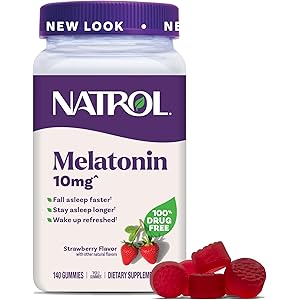Physician's CHOICE Probiotics for Women - PH Balance, Digestive, UT, & Feminine Health - 50 Billion CFU - 6 Unique Strains for Her - Organic Prebiotics, Cranberry Extract+ - Women Probiotic - 30 CT
$23.97 (as of October 25, 2025 06:13 GMT +00:00 - More infoProduct prices and availability are accurate as of the date/time indicated and are subject to change. Any price and availability information displayed on [relevant Amazon Site(s), as applicable] at the time of purchase will apply to the purchase of this product.)Understanding Bloating and Gas
Bloating and gas are common digestive issues that can cause discomfort and embarrassment. Bloating refers to a feeling of fullness or swelling in the abdomen, often accompanied by gas, which is the buildup of air in the digestive tract. These symptoms can be influenced by various factors, including diet, lifestyle, and underlying health conditions. Understanding how diet impacts bloating and gas is crucial for managing these uncomfortable symptoms effectively.
Identifying Trigger Foods
One of the first steps in managing bloating and gas through diet is identifying trigger foods. Certain foods are known to produce more gas during digestion, leading to bloating. Common culprits include beans, lentils, cruciferous vegetables like broccoli and cauliflower, dairy products, and carbonated beverages. Keeping a food diary can help pinpoint which foods consistently lead to discomfort, allowing for more informed dietary choices.
Incorporating Low-FODMAP Foods
The Low-FODMAP diet is designed to help individuals manage bloating and gas by reducing certain carbohydrates that are poorly absorbed in the small intestine. FODMAP stands for fermentable oligosaccharides, disaccharides, monosaccharides, and polyols. Foods low in FODMAPs, such as bananas, blueberries, carrots, and gluten-free grains, can be beneficial in alleviating symptoms. Gradually reintroducing high-FODMAP foods can help identify personal tolerance levels.
Staying Hydrated
Hydration plays a vital role in digestive health and can help manage bloating and gas. Drinking plenty of water aids in digestion and helps prevent constipation, which can exacerbate bloating. Herbal teas, such as peppermint or ginger tea, can also soothe the digestive tract and reduce gas. Aim for at least eight glasses of water a day, and consider incorporating hydrating foods like cucumbers and watermelon into your diet.
Eating Smaller, More Frequent Meals
Another effective strategy for managing bloating and gas is to eat smaller, more frequent meals throughout the day. Large meals can overwhelm the digestive system, leading to increased gas production and bloating. By consuming smaller portions, you can ease the digestive process and minimize discomfort. Additionally, chewing food thoroughly and eating slowly can help reduce the amount of air swallowed, further decreasing gas buildup.
Limiting Processed Foods
Processed foods often contain additives, preservatives, and high levels of sodium, which can contribute to bloating and gas. These foods may also lack essential nutrients and fiber, which are important for digestive health. Focusing on whole, unprocessed foods such as fruits, vegetables, whole grains, and lean proteins can improve digestion and reduce symptoms. Reading labels and choosing products with fewer ingredients can help in making healthier choices.
Considering Probiotics
Probiotics are beneficial bacteria that can support gut health and may help alleviate bloating and gas. Incorporating probiotic-rich foods like yogurt, kefir, sauerkraut, and kimchi into your diet can promote a healthy balance of gut bacteria. Alternatively, probiotic supplements are available and can be considered after consulting with a healthcare professional. A balanced gut microbiome can enhance digestion and reduce gas production.
Avoiding Artificial Sweeteners
Many sugar substitutes, such as sorbitol and mannitol, can cause bloating and gas as they are not fully absorbed by the body. These artificial sweeteners are commonly found in sugar-free products, including candies and beverages. To manage bloating and gas effectively, it may be beneficial to limit or eliminate these sweeteners from your diet. Opting for natural sweeteners like honey or maple syrup can be a better alternative.
Monitoring Fiber Intake
Fiber is essential for digestive health, but increasing fiber intake too quickly can lead to bloating and gas. Gradually incorporating fiber-rich foods such as fruits, vegetables, and whole grains into your diet can help your digestive system adjust. It’s also important to balance soluble and insoluble fiber, as both types play different roles in digestion. Soluble fiber can help regulate bowel movements, while insoluble fiber aids in preventing constipation.
Consulting a Healthcare Professional
If bloating and gas persist despite dietary changes, it may be time to consult a healthcare professional. A registered dietitian can provide personalized advice and help identify any underlying conditions that may be contributing to digestive issues. Additionally, they can guide you through elimination diets or recommend appropriate tests to determine food intolerances or sensitivities. Taking a proactive approach to digestive health can lead to significant improvements in overall well-being.


